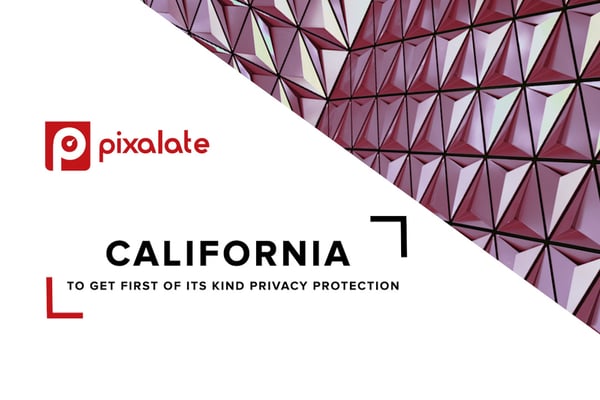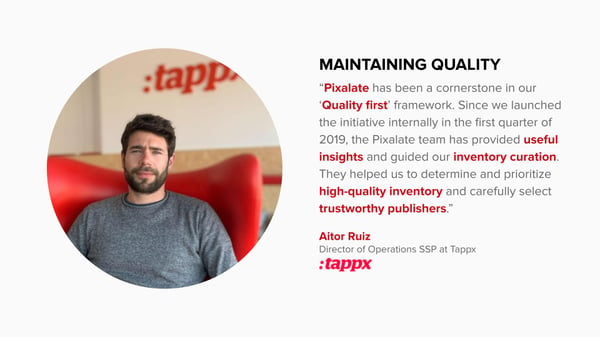
This week's review of ad fraud and privacy in the digital advertising space.

Pixalate wrote about California’s new Privacy Protection Agency (CPPA), which was enacted under the California Privacy Rights Act of 2020 (CPRA). As the first dedicated privacy regulator in the United States, the agency is tasked with implementing and enforcing the California Privacy Rights Act and the California Consumer Privacy Act of 2018 (CCPA).
Pixalate is excited to work with and provide counsel to more state governments as they implement laws with the goal of protecting consumers’ privacy. The creation of an agency of this kind is meaningful for the ad industry because the new focus on privacy will change the way advertisers have utilized data in the programmatic space.

Pixalate spoke with Aitor Ruiz, Director of Operations of the Programmatic department at Tappx, about combatting invalid traffic (IVT) and ad fraud within a challenging omnichannel ecosystem.
Ruiz said, "Tappx has been leading industry transparency rankings and currently relies on a rigorous ‘Quality first’ framework. Our ‘Quality first’ framework is an initiative launched at the beginning of 2019 to support our mission to create a better media industry by protecting and balancing the interests of publishers, advertisers and consumers... Pixalate has been a cornerstone in our ‘Quality first’ framework. Since we launched the initiative internally in the first quarter of 2019, the Pixalate team has provided useful insights and guided our inventory curation. They helped us to determine and prioritize high-quality inventory and carefully select trustworthy publishers."

MediaPost reported that “the European Union passed landmark antitrust regulations late Thursday. The regulations, expected to come into force as early as October.”
As these regulations affect internet “gatekeepers,” tech mega giants may be forced to reexamine their business practices in order to remain in compliance.

Geeky Gadgets published a how-to guide for parents on how to utilize iOS privacy features to ensure a safer browsing experience for their children. As Pixalate has found in its Mobile Apps: Google vs. Apple COPPA Scorecard (Children’s Privacy) Scorecard report, close to 40% of child-directed mobile apps can potentially access personal information. Given this it's important that parents are stepping in and making sure they have oversight over apps’ access to their childrens' personal information, location, etc.

A new OnePoll survey, on behalf of LightSpeed Systems - based on a poll of 2,000 American parents with school-age children - found that 64% are concerned about the amount of time their children spend on the internet. Two thirds of these parents believe that their child’s overall behavior has changed as a result of increased time online.
*By entering your email address and clicking Subscribe, you are agreeing to our Terms of Use and Privacy Policy.
These Stories on Weekly Recaps
*By entering your email address and clicking Subscribe, you are agreeing to our Terms of Use and Privacy Policy.

Disclaimer: The content of this page reflects Pixalate’s opinions with respect to the factors that Pixalate believes can be useful to the digital media industry. Any proprietary data shared is grounded in Pixalate’s proprietary technology and analytics, which Pixalate is continuously evaluating and updating. Any references to outside sources should not be construed as endorsements. Pixalate’s opinions are just that - opinion, not facts or guarantees.
Per the MRC, “'Fraud' is not intended to represent fraud as defined in various laws, statutes and ordinances or as conventionally used in U.S. Court or other legal proceedings, but rather a custom definition strictly for advertising measurement purposes. Also per the MRC, “‘Invalid Traffic’ is defined generally as traffic that does not meet certain ad serving quality or completeness criteria, or otherwise does not represent legitimate ad traffic that should be included in measurement counts. Among the reasons why ad traffic may be deemed invalid is it is a result of non-human traffic (spiders, bots, etc.), or activity designed to produce fraudulent traffic.”

